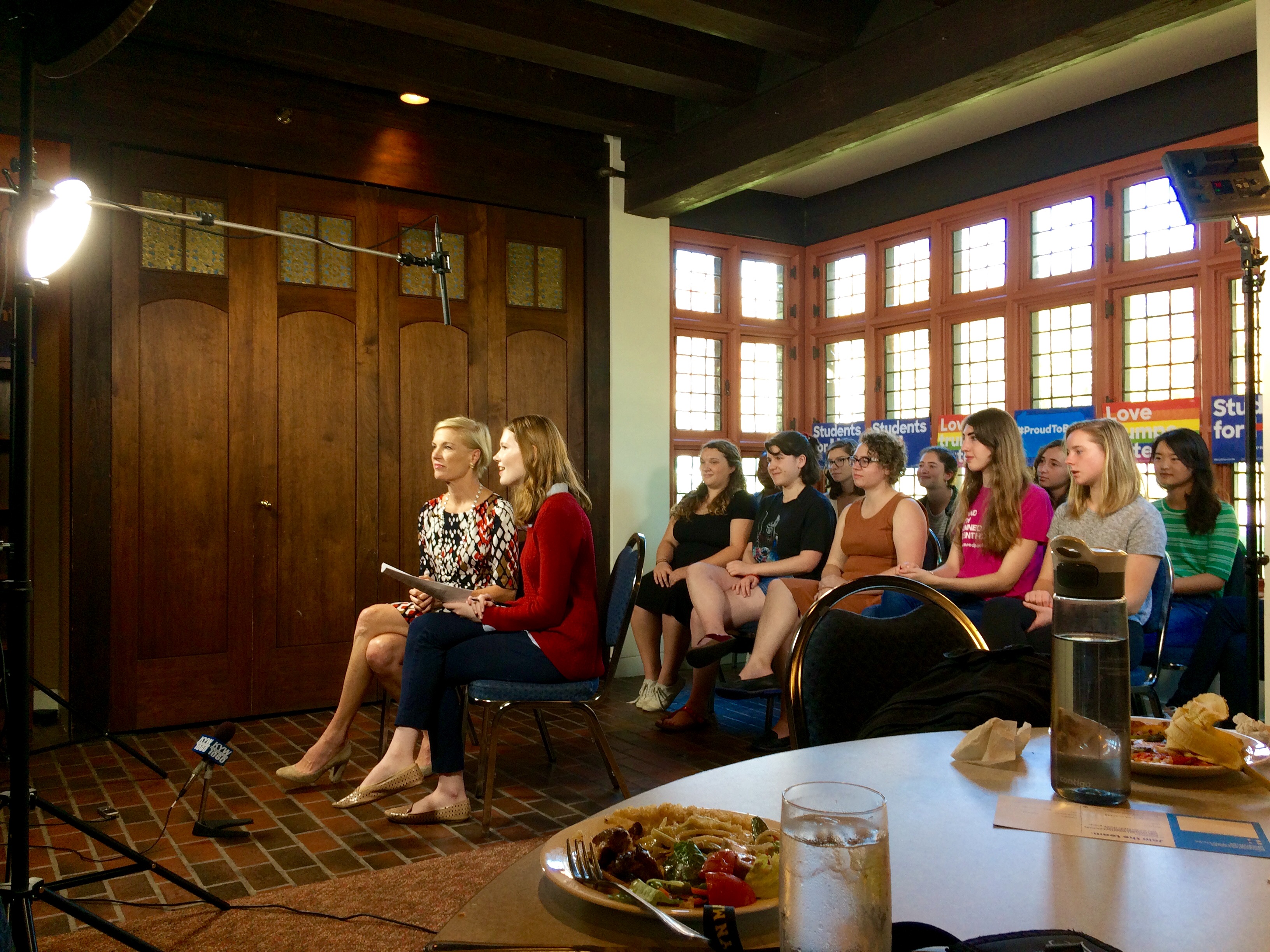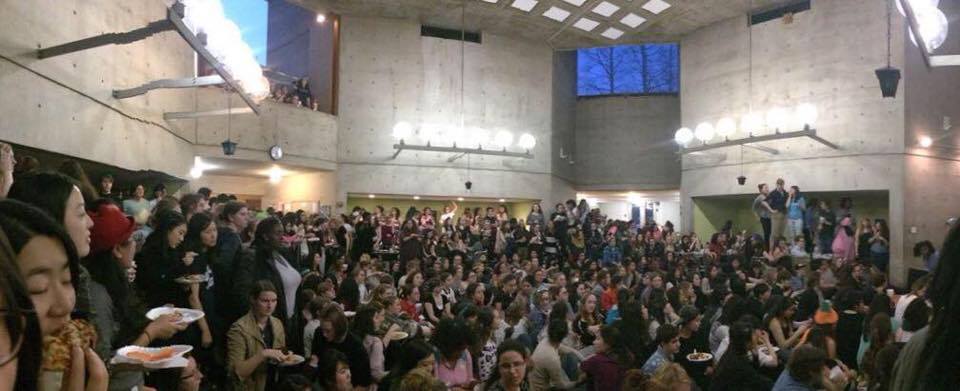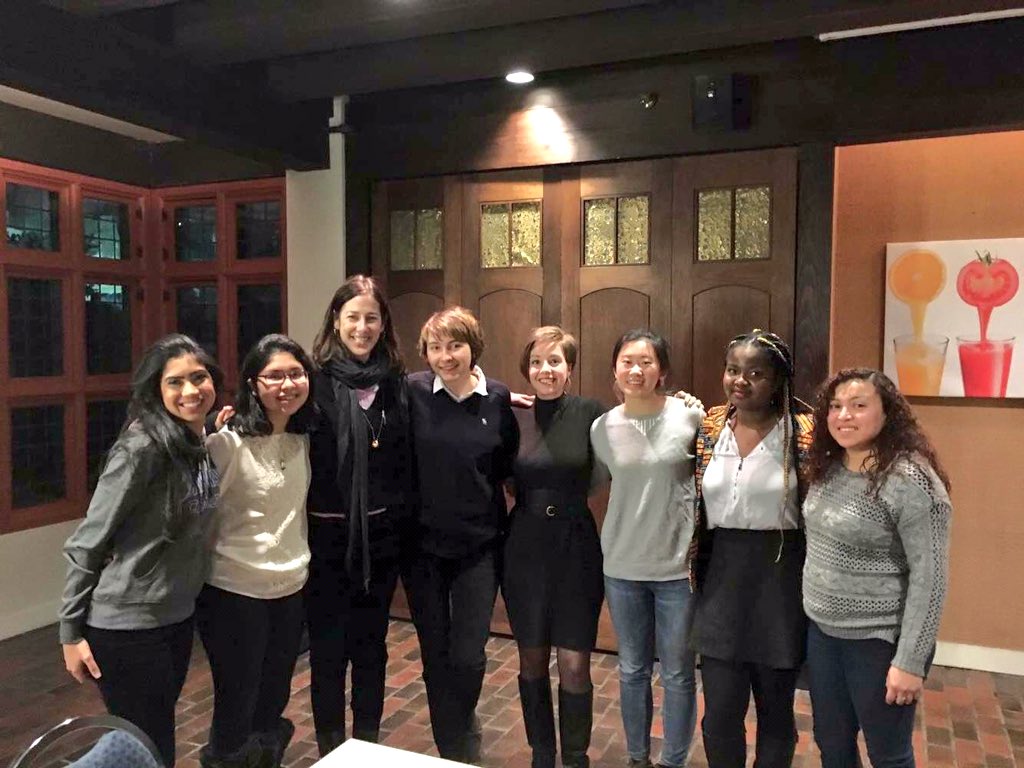On Tuesday October 18, Cecile Richards, president of Planned Parenthood, visited Bryn Mawr College to talk about women’s rights to healthcare and the upcoming presidential election. The event was hosted by the Bryn Mawr College Democrats (with president Nora Dell ’19 interviewing) and Facebook live streamed to the Hillary for Pennsylvania page.  Continue reading
Continue reading
Tag Archives: feminism
Hell Week is…
- Welcoming the First Years (WTF) (students & faculty/staff)
- Building relationships between upperclass students and first years
- Owning your sexuality
- Building confidence
- Time for the entire campus to come together and support each other
- A longer line to get into Goodhart performances than plenary
- A plug to get you to go to Plenary (which you should)
- A tradition
- Optional
“Why a Women’s College” with Lisa Birnbach
On Tuesday, writer/speaker Lisa Birnbach visited Bryn Mawr to talk to students about Bryn Mawr and women’s colleges in today’s society. She is on a journey to 9 women’s colleges along the East Coast researching and interviewing students for an upcoming article for Vanity Fair.
Winter Break Reading: Uncommon Women and Others
My winter break readings of choice are Wendy Wasserstein’s plays Uncommon Women and Others, Isn’t It Romantic?, and The Heidi Chronicles. I had heard of the plays through an alum who had posted a quote about Bryn Mawr from Uncommon Women and Others on the Facebook group You Know You Went To Bryn Mawr College When….
Wendy W asserstein received her B.A. in history from Mount Holyoke College in 1971, an M.A. in creative writing from City College of New York in 1973, and an M.F.A. in fine arts from the Yale School of Drama in 1976. Uncommon Women and Others was her graduate thesis at Yale. She won the Tony Award, the Susan Smith Blackburn Prize, and the Pulitzer Prize for Drama for her play The Heidi Chronicles in 1989. Her plays typically focus on feminism, family relations, and pop culture.
asserstein received her B.A. in history from Mount Holyoke College in 1971, an M.A. in creative writing from City College of New York in 1973, and an M.F.A. in fine arts from the Yale School of Drama in 1976. Uncommon Women and Others was her graduate thesis at Yale. She won the Tony Award, the Susan Smith Blackburn Prize, and the Pulitzer Prize for Drama for her play The Heidi Chronicles in 1989. Her plays typically focus on feminism, family relations, and pop culture.
I finished reading Uncommon Women and Others and Isn’t It Romantic? and am starting The Heidi Chronicles. Continue reading
“Sexual Liberation, Socialist Style. Gender, Sex, and Politics in Czechoslovakia, 1948-1989” by Katerina Liskova
Today, my history professor Anita Kurimay brought visiting guest speaker, and Assistant Professor of Sociology at Masaryk University in the Czech Republic, Katerina Liskova to our class to sit in on our discussion on how communist leaders, intellectuals, and everyday people responded to the suppression of reform movements in East Central Europe.
 We focused on anti-politics and ethics as a means for people to stop participating in public life away from Communist party scrutiny. People had stopped believing in “socialism with a human face” and instead turned to private life, religion, culture, moral issues, ethics, and anti-politics.
We focused on anti-politics and ethics as a means for people to stop participating in public life away from Communist party scrutiny. People had stopped believing in “socialism with a human face” and instead turned to private life, religion, culture, moral issues, ethics, and anti-politics.
Katerina Liskova’s area of interest is in sexology, which involves aspects of both private and public life. Her opinion on anti-politics in East Central Europe was that it was sometimes difficult to separate private and public life when the Communist party was heavily invested in the reproductive health of their people as a reflection of the growth and strength of socialism.


